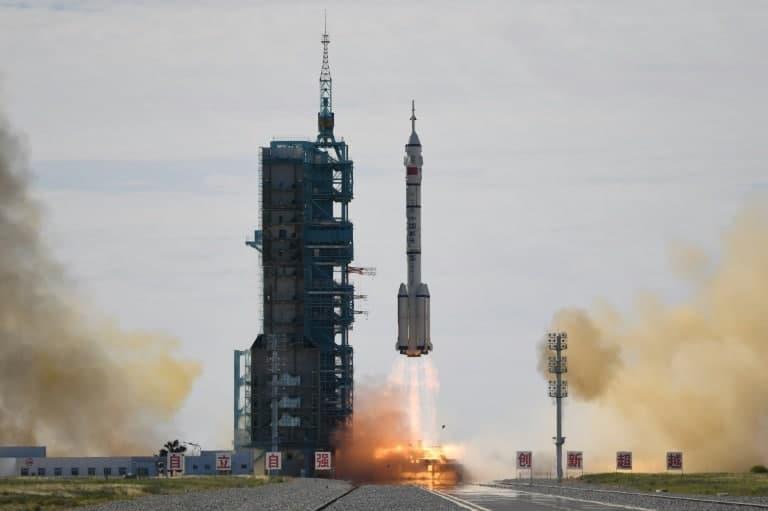JIUQUAN, June 17 (AFP) - The first astronauts for China's new space station blasted off on Thursday (Jun 17) for the country's longest crewed mission to date, a landmark step in establishing Beijing as a major space power.
The trio launched on a Long March-2F rocket for the Tiangong station, where they will spend three months, in a blast-off broadcast live on state TV.
Lift-off happened at 9.22am local time from the Jiuquan launch centre in northwest China's Gobi desert, with the rocket lifting off in clouds of smoke against a blue sky.
After about 10 minutes it reached orbit and the space craft separated from the rocket, to loud applause in the control room among rows of blue-suited engineers.
State broadcaster CCTV showed a live feed from inside the spacecraft, with the three astronauts lifting their helmet visors and one smiling and waving at the camera.
Another floated a pen just off his lap in zero-gravity as he browsed the flight manual.
Cameras outside the craft broadcast live images of the Earth below.
"According to reports from the Beijing aerospace control centre, the Long March-2F rocket has sent the Shenzhou-12 manned spacecraft to the preset orbit," said Zhang Zhifen, director of the Jiuquan satellite launch centre.
"The solar panels unfolded successfully and now we declare the Shenzhou-12 mission a complete success."
At a ceremony before blastoff, the three astronauts already wearing their space suits greeted a crowd of supporters including family members and staff from the space station.
A crowd of space workers and their families had gathered for the ceremony and sang the patriotic song "Without the Chinese Communist Party, there would be no new China", waving Chinese flags and flowers.
The mission's commander is Nie Haisheng, a decorated air force pilot in the People's Liberation Army who has already participated in two space missions.
The two other members are also members of the military.
